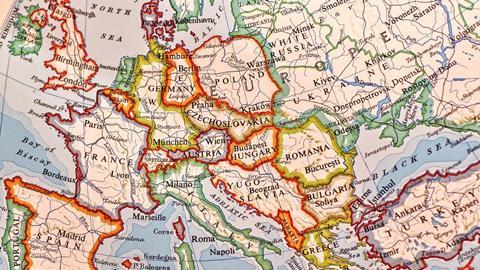Money laundering in the European Union is more widespread and more complex than previously thought, Europol has said in a detailed analysis of crime threats.
The European Union (EU) Serious and Organised Crime Threat Assessment (SOCTA) is published every four years and outlines the current landscape for crime.
The latest SOCTA, published yesterday, said professional launderers have established a “parallel” system of financing that operates underground.
It said: “The scale and complexity of money laundering activities in the EU have previously been underestimated.
“Serious and organised crime in the EU fundamentally relies on the ability to launder vast amounts of criminal profits.
“For this purpose, professional money launderers have established a parallel underground financial system to process transactions and payments isolated from any oversight mechanisms governing the legal financial system.
“This parallel system ensures that the criminal proceeds cannot be traced as part of a sophisticated criminal economy.”
The report said more than two thirds (68%) of criminal groups and networks use “basic” methods such as investing in property or high-value goods, with some relying on slightly more sophisticated methods such as cash-intensive businesses.
The dedicated money laundering service providers and networks, however, use sophisticated and innovative schemes to launder large amounts of proceeds on a regular basis, with 32% of crime groups having access to these services.
“In many cases, service providers enable access to a parallel banking system which allows criminals to transfer money to associates across the world,” the report said.
The research also describes the role played by illegal intermediaries and brokers.
“Many illegal money brokers and bankers constitute High Value Targets as they are crucial in enabling money transfers and provide services to different clients.
“Tackling them will cause disruption in several process chains. Brokers or intermediaries are crucial in connecting networks, individual criminals and groups. They enable and facilitate criminal business, linking producers with wholesale distributors, and distributors with transport providers. They also facilitate access to informants, hitmen, document forgers and other criminal specialists.”
The SOCTA also highlighted the role played by “low-level facilitators”, such as “straw owners” who have dozens of vehicles or companies registered in their name.
“Acting on these straw owners can be a first step towards the detection, investigation and tackling of organised crime. In some cases, these facilitators are coerced through deception, extortion and violence,” it said.
Register for the latest financial crime news and analysis straight to your inbox

























No comments yet